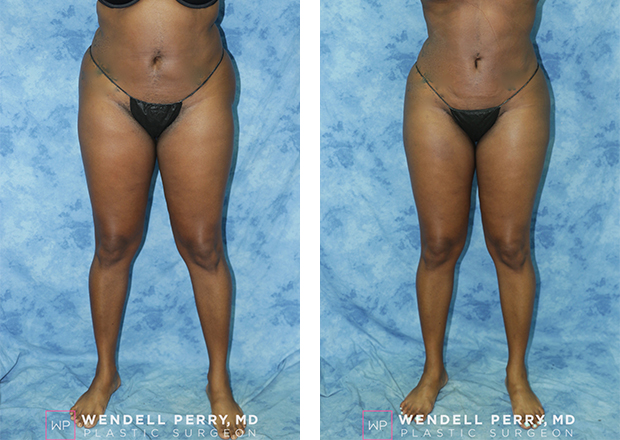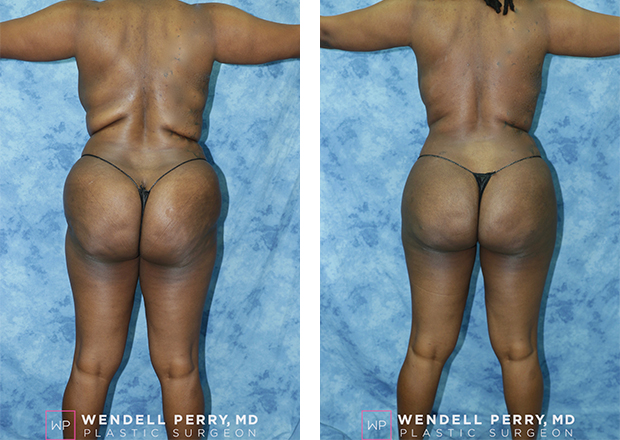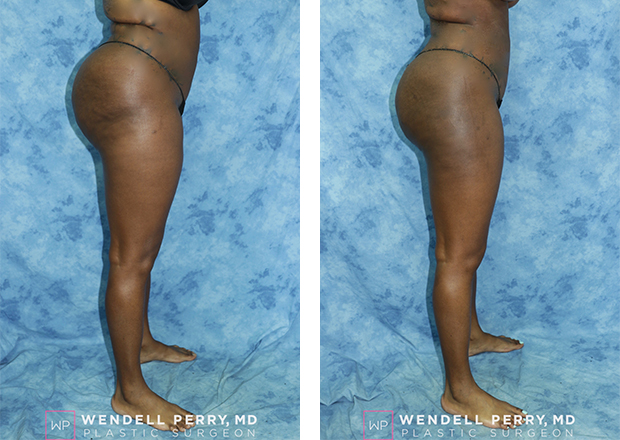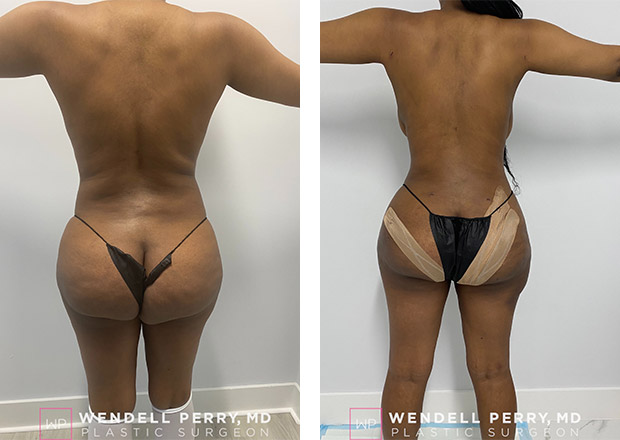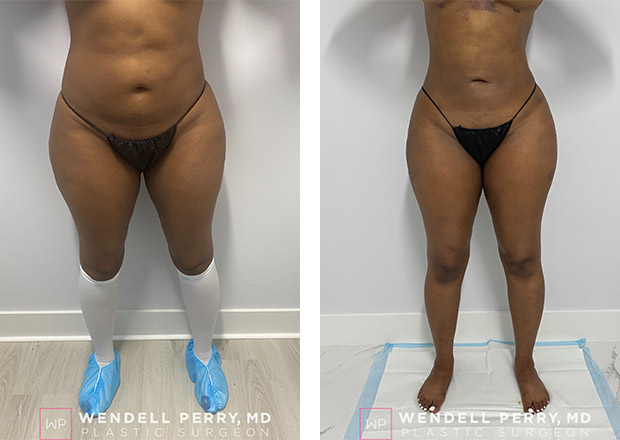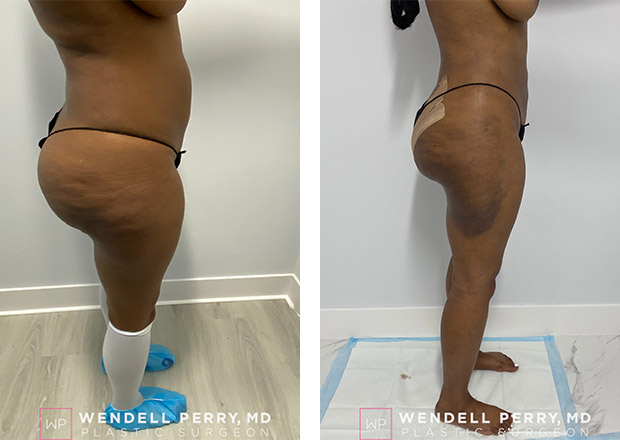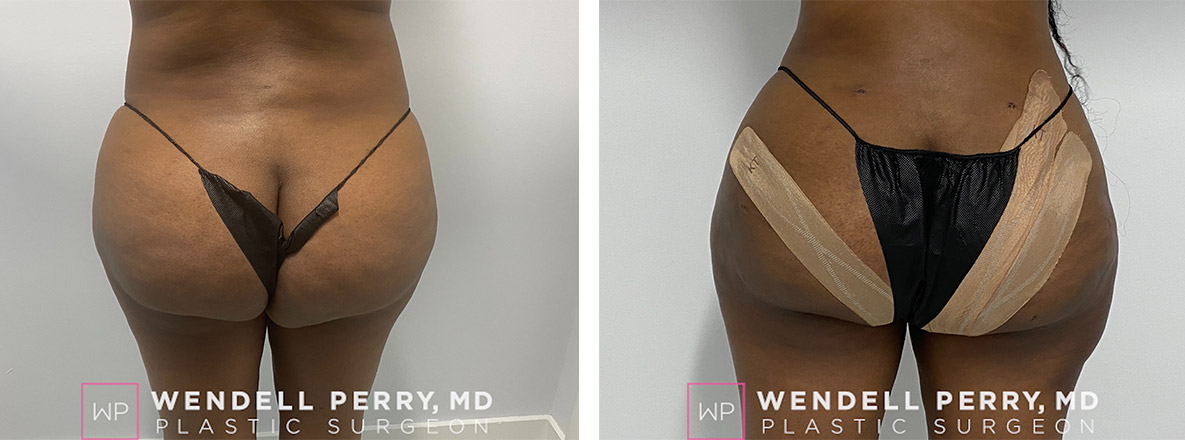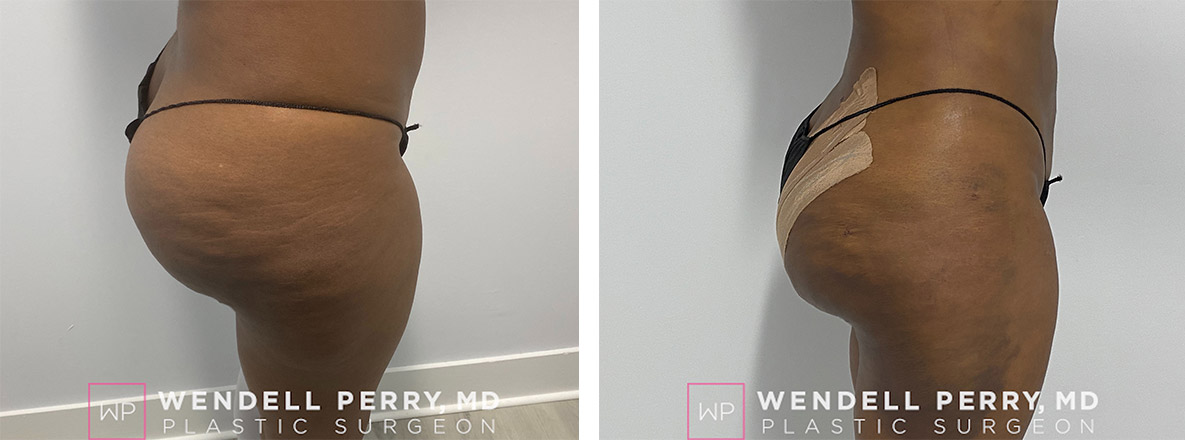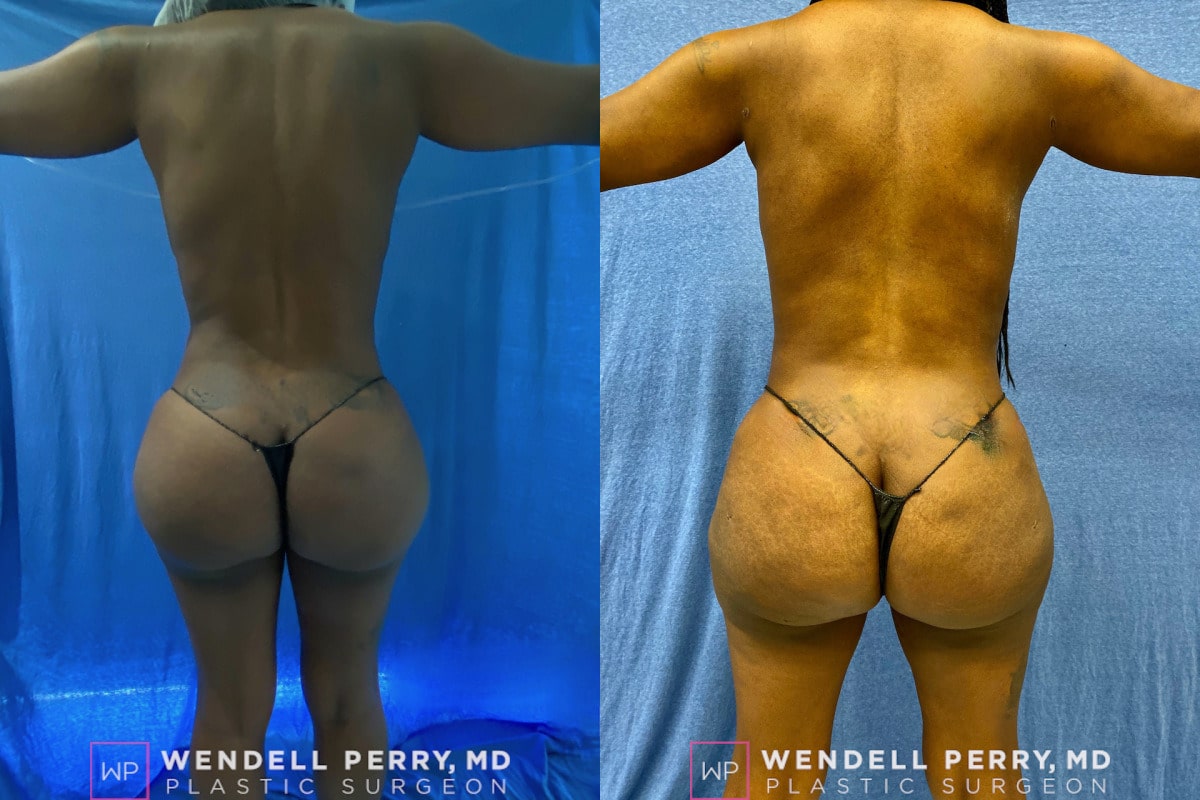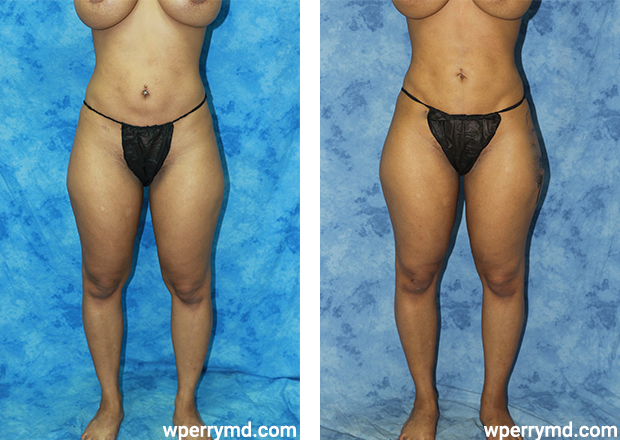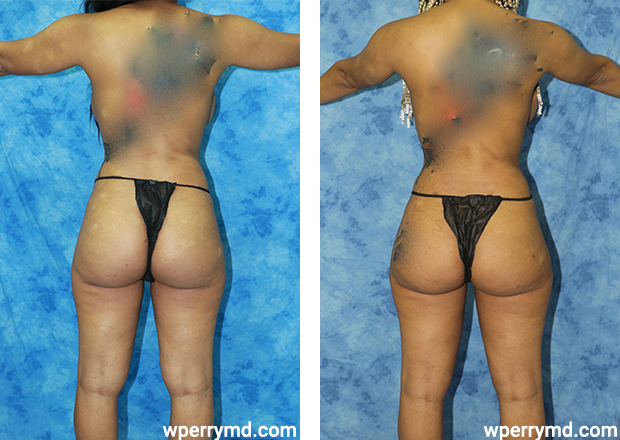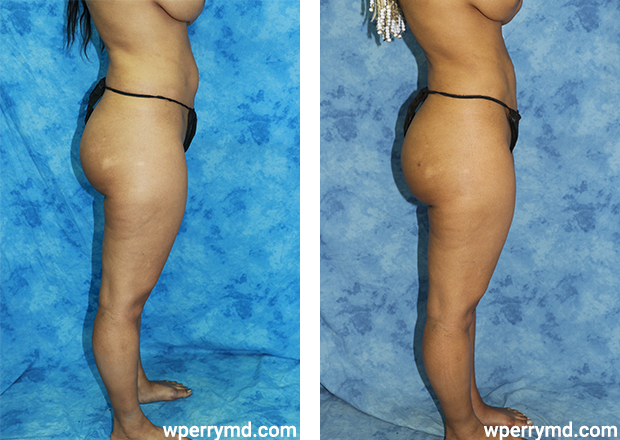A Brazilian butt lift (BBL) can help you achieve your dream body, but sometimes the results are not what you expected after the initial procedure. Board-certified plastic surgeon Dr. Wendell Perry offers many revision procedures, including the BBL revision, to correct unsatisfactory results from other surgeons and help you feel more confident in your body.
What is BBL Revision Surgery?
BBL revision surgery, or Brazilian butt lift revision, is a plastic surgery procedure that addresses complications or poor results from a previous BBL procedure. Potential complications may include rippling or deep grooves from improper fat grafting, lumps, asymmetry, fat necrosis, or irregular contouring. The body can also absorb too much fat, resulting in smaller buttocks than desired. Butt augmentation with implants can also be corrected if the implant was poorly placed and has “flipped” or become visible through the skin.
Who is a Candidate for BBL Revisions?
The best candidates for a revision BBL are healthy adults with no underlying medical problems and realistic expectations. Patients must have enough excess fat to transfer to the buttocks. If you are unhappy with the results of your previous Brazilian butt lift procedure, we encourage you to schedule a consultation at our office.
During your Brazilian Butt Lift (BBL) revision consultation, Dr. Perry will review your medical history, listen to your concerns, answer your questions, and determine if this is the right procedure for you.
Benefits of BBL Revision Surgery
The BBL revision procedure comes with a wide range of benefits. You will be able to finally see the results you were looking for from your previous surgery and be able to enjoy your new figure. Whether your concerns were asymmetry or complications, Dr. Perry will ensure you’re completely happy with your results. Many of our patients also notice a significant boost in their confidence. With less unwanted fat on one part of your body and newly enhanced curves in the buttocks area, you’ll love your new physique. Dr. Perry also ensures that your new curves blend well with the rest of your proportions to ensure your results are natural-looking.
About the BBL Revision Procedure
BBL revision is a similar surgical procedure to the standard and initial BBL surgery. First, liposuction will be used to remove excess fat cells from another area of the body, like the stomach, thighs, or waistline. Next, Dr. Perry will carefully inject the harvested fat cells into the buttocks to increase their size and create a smooth, even contour.
Patient Results
Visit GalleryRecovery from BBL Revision
After Brazilian butt lift revision, it is necessary to avoid sitting directly on your buttocks for eight weeks. Pressure from sitting could kill the transferred fat cells, which will not create optimal results. Patients should avoid strenuous activities for about four weeks, but most can return to work and light daily activities after 1-2 weeks.
Although you might experience some pain in the area where you received liposuction during the first few days, you can easily relieve it with pain medications. Final results can be seen after 2-3 months.
Schedule a BBL Revision Consultation
Dr. Perry’s goal is to help his patients feel more confident in their appearances, and we are pleased to offer customized treatment plans that consider all your needs and treatment goals. If you are bothered by the previous results of your initial surgery, we encourage you to schedule a consultation for BBL revision at our office in South Miami, FL.
 Video
Video Reviews
Reviews Gallery
Gallery